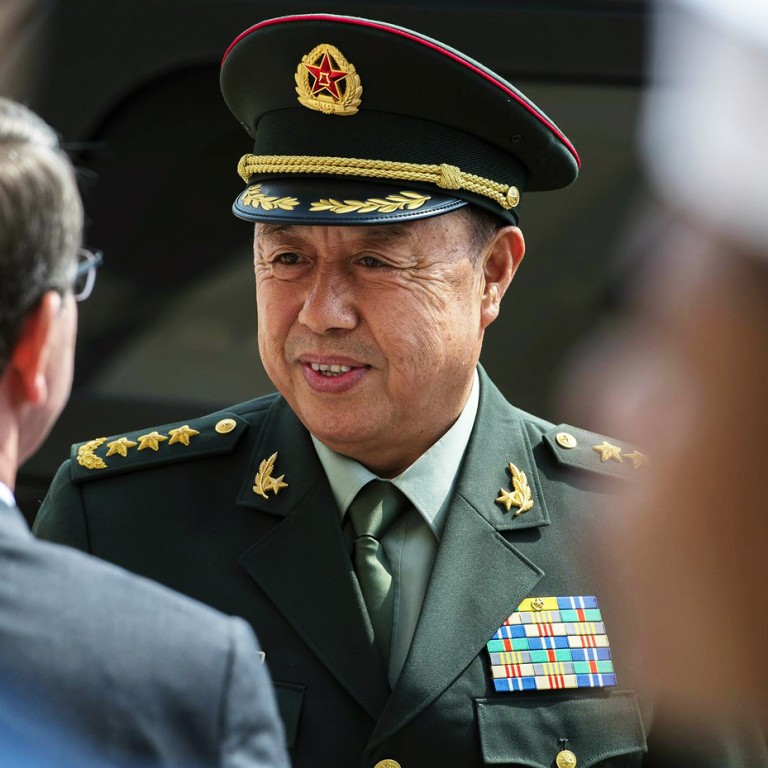
A break with tradition: the key Sino-US meeting that didn't happen
Domestic politics may have played a role in Obama's decision to not meet a top military official, an analyst says
US President Barack Obama broke with a longstanding precedent last week, failing to meet General Fan Changlong, the vice-chairman of China's powerful Central Military Commission, during his five-day trip to Washington.
Fan, a military heavyweight and one of President Xi Jinping's most trusted right-hand men, is at the forefront of talks over territorial claims in the South China Sea.
His trip began on June 15, a day after Beijing tested its supersonic nuclear delivery vehicle, which the US calls the "Wu-14". China-based military experts said the test was an attempt by Beijing to underscore its nuclear deterrent in response to Washington's continued interference in China's territorial disputes in the region.
It was not clear if the test was linked to Obama's decision not to meet Fan but a senior adviser at a US-based think tank said the White House decided against a meeting, despite the Pentagon recommending that it go ahead.
"I asked the same question [why the US president did not meet Fan] to an official from the Pentagon and the answer I got was 'ask the White House'," the adviser said.
"I was told that the Pentagon recommended that he meet with Fan Changlong and it was the White House that decided no."
It is the first time in two decades that a CMC vice-chairman has not met the US president on an official visit to the United States. US Secretary of Defence Ash Carter hosted an event for Fan at the Pentagon which was attended by few high-ranking military officials and did not feature the customary 19-gun salute.
Fan's predecessors, generals Guo Boxiong, Zhang Wannian, Cao Gangchuan and Chi Haotian, all met the sitting US president during official trips.
The US think tank adviser said Chinese military officers had seemed hopeful ahead of the visit that Fan and Obama would meet.
Peking University international relations professor Jia Qingguo said domestic pressure might have prompted Obama to skip the meeting.
"China's reclamation works in the South China Sea have triggered quite a strong backlash in the US. And there is a common public perception that the People's Liberation Army is responsible for the projects," Jia said.
"If Obama met Fan he could appear to be acquiescing to China's reclamation works."
The White House and China's defence ministry did not respond to requests for comment.
China has said that Sino-US military ties will not be affected by diplomatic spats over territory and other core issues, including differences over Taiwan.
On April 9 last year, one day before China criticised the US for passing a bill giving the go-ahead for the sale of four second-hand US warships to the island, Xi met then US defence secretary Chuck Hagel and called for a closer military ties with the US to avoid confrontation.
The meeting was also a day after Hagel and Defence Minister Chang Wanquan traded fire on various issues.

